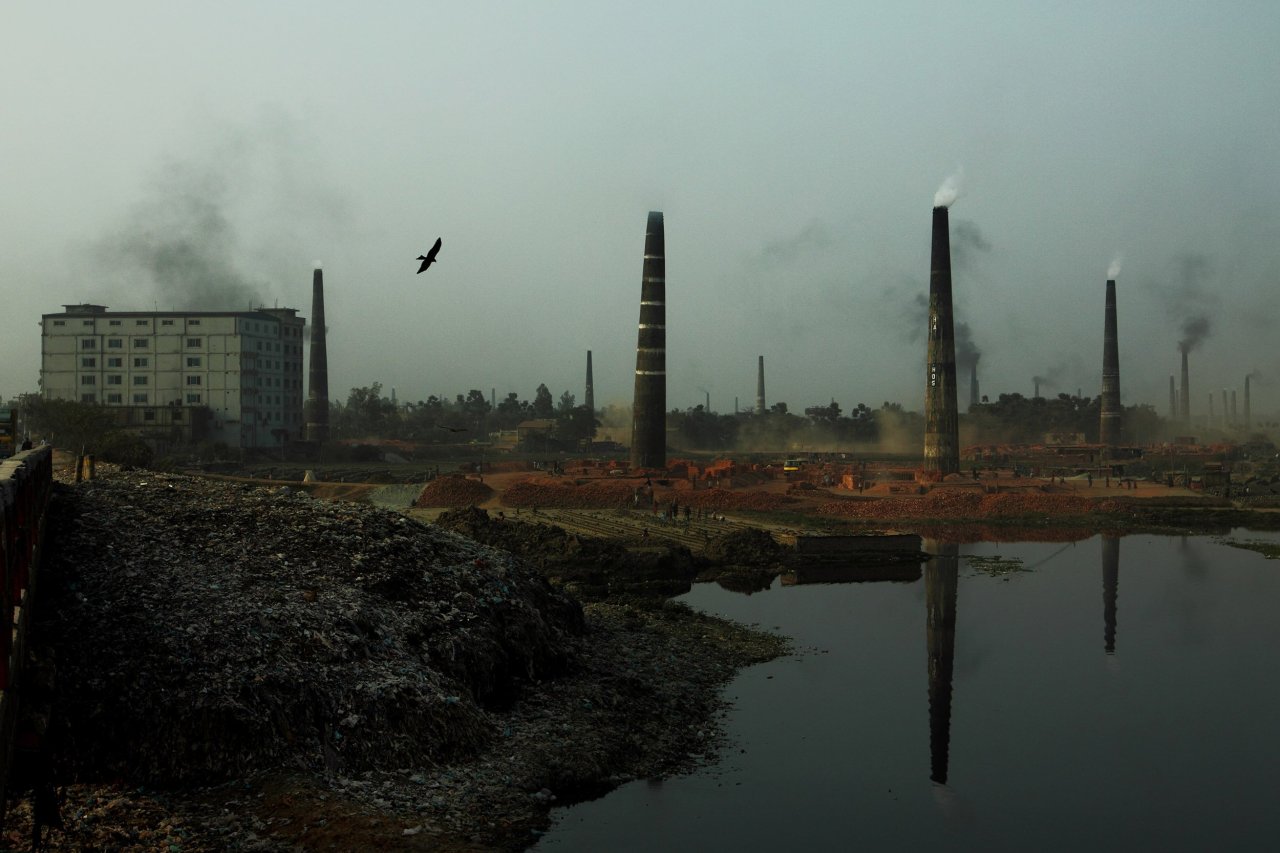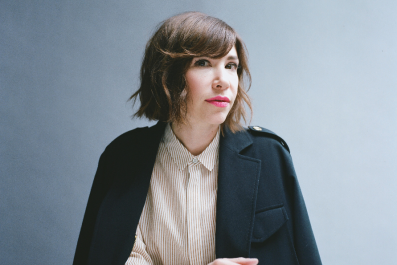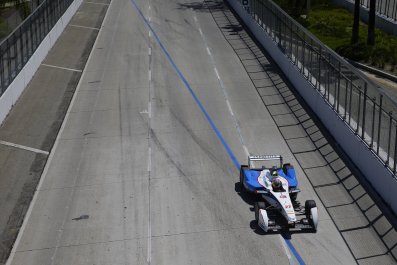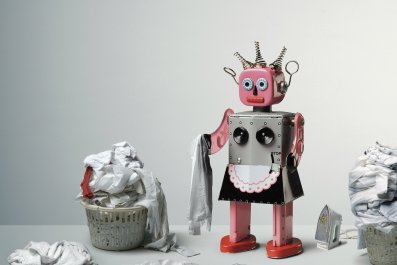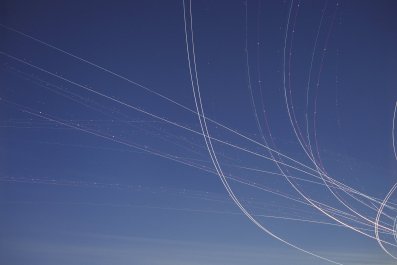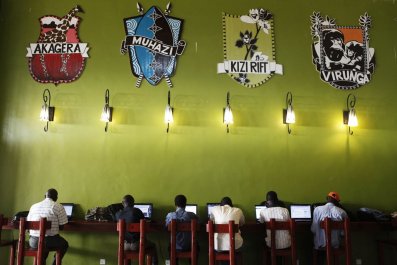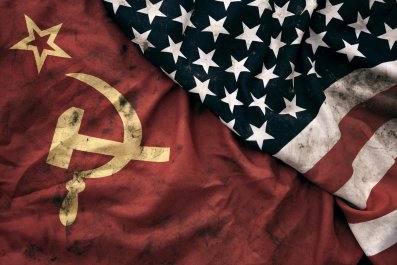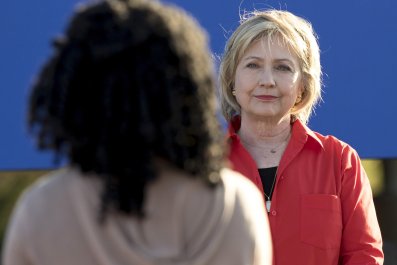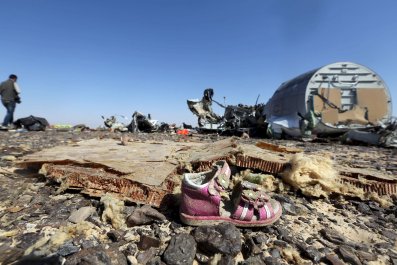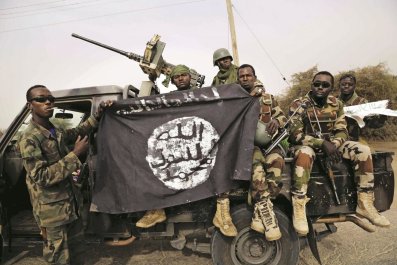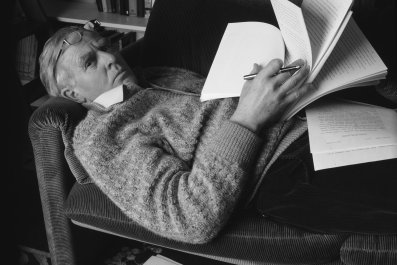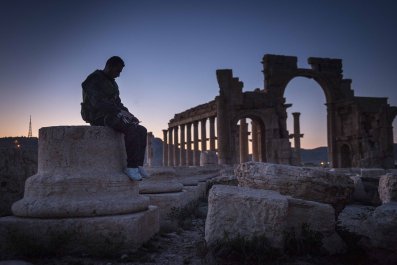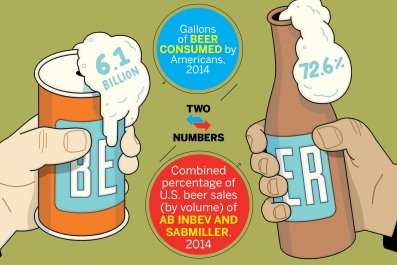Over the past five years, wealthy countries have been contributing billions of dollars to a fund designed to rescue the poorest countries from the effects of climate change. It's like a complicated, politically charged Kickstarter campaign in which the reward is saving the planet. In that sense, it's already the biggest crowdfunding effort of all time: The Green Climate Fund wields more than $10 billion in promised funding. President Barack Obama has pledged $3 billion (though Congress must still approve the decision). Japan pledged $1.5 billion, and the United Kingdom pledged $1.2 billion. As of late September, even China is on board, kind of. It pledged $3.1 billion to a separate fund, part of which will help developing countries build capacity to receive GCF money. Now the question is what to do with all that cash.
On November 2, the 24-member board of the GCF convened at a resort overlooking Victoria Falls in Livingstone, Zambia. It was a crucial meeting because of item No. 14 on the draft agenda: "consideration of funding proposals." For countries like Bangladesh and the Philippines, lying in the likely paths of future super-cyclones, or the Maldives, perched just a few feet above swelling seas, the money in that fund is a chance to fortify people's livelihoods and homes. It's a windfall the countries' meager national economies could never provide. "It has the potential to become the most important multilateral public fund," says Liane Schalatek, a climate finance expert with the nonprofit Heinrich Böll Foundation North America.
The location of the November board meeting was symbolic. The Zambia River Basin, which feeds Victoria Falls (the Earth's largest waterfall), is the river valley in Africa most vulnerable to global warming. Experts anticipate the area will soon see a significant temperature rise, reduced water flow and occasional monsoon-like storms, despite less rainfall generally. The 32 million people living near the riverbanks will face shortages of drinking water and floods that threaten to wash away their homes and crops.
And yet Zambia, Zimbabwe, Mozambique and other basin countries are among the least capable of adapting to climate change, according to the University of Notre Dame Global Adaptation Index. Without much industrial pollution to speak of, they also have had very little to do with the greenhouse gas emissions that caused today's climate crisis. In other words, some parts of the world most vulnerable to climate change are also the ones least responsible for it—and the least likely to be able to afford to protect themselves . The GCF is here to fix that.
When the U.N. created the fund in 2010, it was with the hope of stopping global warming from surpassing 2 degrees Celsius above preindustrial levels. The goal is to raise enough money from taxpayers in the richest countries, and from private investors, to spend $100 billion per year on the effort in poorer and more vulnerable countries, starting in 2020. The GCF believes such a massive investment in low-emissions technology and climate resilience will cause a "paradigm shift"—something like a reversal of the paradigm shift the internal combustion engine caused 150 years ago.
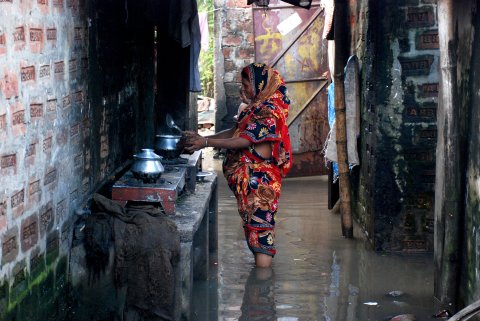
The project is entering a field made up of a scattershot array of existing efforts. Some of these are exemplary. In Ghana, for example, a $787,000 grant helped farmers increase their salaries 400 percent by using irrigation and by growing more marketable crops. And in Kenya, a $2.6 million project installed solar-powered water purification and solar-powered lighting in schools and health centers. For many of the 300,000 people who benefit, it's the first reliable energy source they've ever had.
But other projects demonstrate just how creatively people can misuse public funds. In 2011, Bangladesh set aside $3.1 million to build "climate-resilient housing" in the country's coastal southwest after Cyclone Aila gutted it. When researchers from Transparency International Bangladesh visited the site, they discovered homes built without walls. "I don't know whether it is built for human beings or not," said Khadija Begum about her house. It turns out the structures had been built exactly to Ministry of Disaster Management and Relief-approved specifications. According to Transparency International Bangladesh, the government halved the cost to construct each house so it could take credit for building more houses. (The disaster management ministry could not be reached by Newsweek.)
"The longer the chain of accountability gets—and it can be very long—then the chain can become murky," says Lisa Elges, head of climate policy at Transparency International headquarters in Berlin. The GCF could safeguard against deceit by submitting to outside scrutiny and building accountability protocols. But so far, leaders of the fund have talked about its commitment to transparency while remaining opaque in practice. The board has weighed major decisions behind closed doors and, in a draft version of its information disclosure policy, even suggested that tape recording certain meetings should not be allowed.
This secretive tendency has already caused scandal. In July, the GCF announced that its board had just accredited 13 new partners, including banks and nonprofits, that will help channel money. The decisions, made entirely in private, were based "on [the partners'] abilities to meet fiduciary, environmental, social and gender requirements," according to the GCF. But activists were furious to learn that Deutsche Bank was on the list—the German banking and financial services company is the 10th biggest worldwide investor in coal, the dirtiest energy source there is.
After meeting deep into the early morning of November 6, the board approved $168 million in spending for eight project proposals culled from 37 applications, despite grumblings from some board members that the projects brought to the table were forced on them too quickly. The GCF is under pressure to demonstrate ahead of the COP21 climate conference in Paris this month that money is on the move—even though independent monitoring units and other important accountability policies are not yet in place.
The GCF would not comment for this article, but it has broadly outlined a variety of accountability safeguards. To encourage diversity, the 24-member board comprises as many representatives of developing countries as developed ones. Countries receiving funds will designate an agency with veto power over projects. And anyone touching money goes through what they say is a rigorous accreditation process.
There are proposed protocols to prevent corruption, but watchdog groups want the GCF to go further by offering protection to whistleblowers and explaining who pays if money is misused or pilfered. As it stands now, "once the money's lost, the money's lost," Elges says.
But elsewhere, climate money is already flowing, and in many cases, it's funneling through funds under far less scrutiny than the GCF. The GCF is emerging at a time when governments and private investors are funding more climate-related projects than ever before. In 2014, global climate finance totaled $9.4 billion, a 50 percent increase over the year before.
Clarisse Kehler Siebert, a research fellow at the Stockholm Environment Institute, says that, yes, we ought to be concerned about corruption when it comes to the GCF—but not to the point of "being paralyzed." She adds, "Daring to do something good is better than doing nothing at all."



